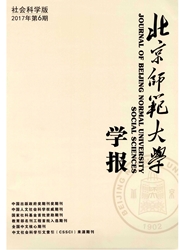

 中文摘要:
中文摘要:
基于高校扩招前后大学生群体的比较,人们普遍认为扩招后大学生的就业状况变差了。我们在认同这一观点的基础上,着重考察了另外一个问题:在教育扩张的背景下,如果个体读大学与假设他不读大学相比,就业状况会如何?利用扩招前后两个年份的全国性人口调查数据,采用描述性统计和基于倾向分匹配估计的方法对此进行了分析。主要结论是:高校扩招后大学毕业生相对于高中毕业生在就业上仍旧延续了优势地位,并且没有明显的变化,现实中观察到的扩招后大学生失业率的上升更多的是由于个体能力和家庭背景等因素造成的,高校扩招在其中仅起到微弱的作用。其政策含义是,就业政策应更加关注低学历人群的就业和就业保障,我国初中后教育规模的进一步扩张仍具有现实基础。
 英文摘要:
英文摘要:
Comparing the employment statuses of graduates before and after the educational expansion, most people think that the graduates'employment in China has became worse after the expansion. However, that argument ignores the following issue:If those graduates did not enroll in college,then what their employment status would be? In this paper,I use the meth- ods of descriptive analysis and propensity score matching estimator to answer the above point according to two nationwide population survey data sets. The results indicate that the relative dominant position of university graduates to high school graduates in employment does not change by higher education expansion. The reality of unemployment rate increasing of the highly educated after expansion has resulted more from individual's ability and household background. It suggests that em- ployment policy should pay more attention to the lower educated;in fact, further expansion of post-secondary school is still demanded.
 同期刊论文项目
同期刊论文项目
 同项目期刊论文
同项目期刊论文
 期刊信息
期刊信息
